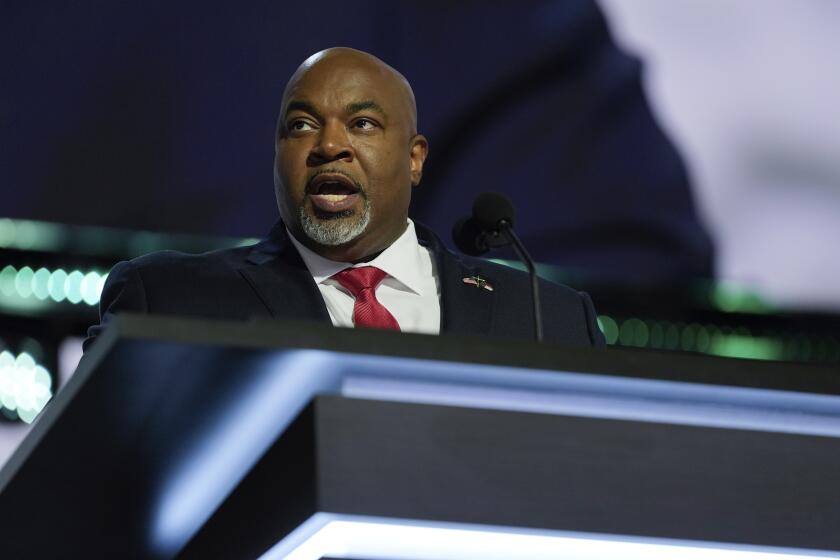Ukrainian rivals agree to elections
In an effort to resolve a political crisis, Ukraine’s president and prime minister agreed Friday to hold early parliamentary elections this summer or fall.
The deal, which sets the stage for a fresh match between the political camps that faced off during the nation’s Orange Revolution, is a victory for President Viktor Yushchenko, who had pressed for an early vote.
The power struggle has geopolitical implications, with Yushchenko’s camp favoring stronger ties with Europe and the United States, whereas Prime Minister Viktor Yanukovich and his supporters generally wish to ensure good ties with Russia.
“This is a very important event for Ukraine because it demonstrates that Ukraine is steadily moving along the road of democracy,” Vadim Karasyov, director of the Institute for Global Strategies, said in a telephone interview from the Ukrainian capital, Kiev. “A very significant precedent was created that in a political stalemate when politicians can’t agree on ways to run the country, early elections may be called and the people can be invited to resolve the situation.”
In an indication that hard bargaining still lies ahead, Yushchenko and Yanukovich, who were fierce rivals in the turbulent 2004 presidential race, immediately offered differing views on when the election should be held. Yushchenko implied that a July date was likely, and Yanukovich said October would be best.
Both men, however, seemed convinced that an election would be held this year to resolve a political crisis that erupted in early April, when the president accused the prime minister of using unconstitutional means to try to cement his hold on power.
“Today, we have agreed on early elections and discussed what needs to be done to ensure that they are fair and democratic,” Yushchenko told a news conference in Kiev.
He said he was prepared to temporarily suspend an April decree dissolving parliament to allow it to approve measures for holding the election, the Russian news agency RIA Novosti reported.
Yanukovich told a rally of supporters that “we came to the only conclusion, that there is no other way to settle the crisis than honest democratic elections,” the Russian news agency Interfax reported.
The crisis was triggered when the prime minister began enticing legislators from the opposition to join the ruling coalition, which Yushchenko said violated the constitution.
A majority in parliament refused to obey Yushchenko’s April decree dissolving that body and calling new elections, labeling the move “a step toward carrying out a coup d’etat.”
Until Friday’s compromise, the two sides had been locked in a bitter standoff, with supporters holding competing rallies.
Yanukovich’s Party of Regions is leading in polls, but the strength of the pro-Yushchenko camp and the pro-Yanukovich camp is nearly evenly matched.
An April poll by the Kiev International Sociology Institute showed 35% support for the Party of Regions and 4% support for its ally the Communist Party, while three parties backing Yushchenko drew 36%. That gives Yanukovich and his allies a slight edge, but leaves election results and future control of parliament too close to call.
The prime minister had refused to consider early parliamentary elections unless early presidential elections were also held. He decided to back down partly because the big-business groups that form a key part of his power base did not want prolonged political instability, the analyst Karasyov said.
Yanukovich and his party also faced the risk that Yushchenko would succeed in forcing an election as early as June, for which they would not be prepared, Karasyov added.
More to Read
Sign up for Essential California
The most important California stories and recommendations in your inbox every morning.
You may occasionally receive promotional content from the Los Angeles Times.









